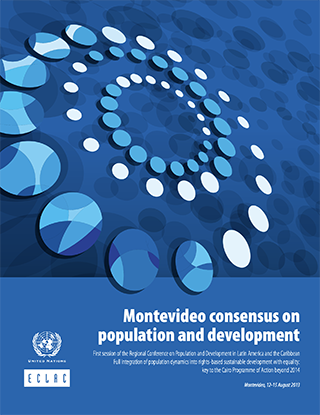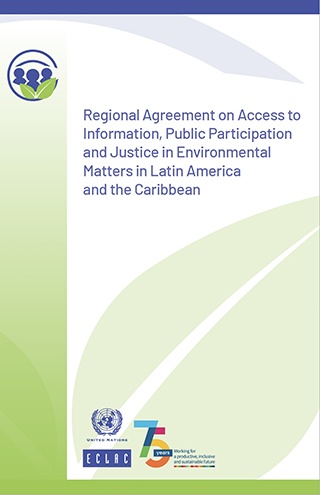Environment and climate change statistics for Latin America and the Caribbean
Regional framework for the SDGs
The particular characteristics of the Latin American and Caribbean region in the different areas of development have pushed the countries of the region to promote the development of a regional framework of indicators for monitoring the SDGs in the region, which is being developed within the Framework of the Statistical Conference of the Americas.
|
Executive Secretary José Manuel Salazar-Xirinachs presented the ECLAC position paper::"Towards transformation of the development model in Latin America and the Caribbean: production, inclusion and sustainability", during the thirty-ninth session, held between October 24 and 26, 2022, in the city of Buenos Aires, Argentina. |
Specific regional frameworks

Escazú Agreement
Adopted on 4 March 2018 in Escazú, Costa Rica, the Regional Agreement aims to guarantee the full and effective implementation in Latin America and the Caribbean of the rights of access to environmental information, public participation in the environmental decision-making process and access to justice in environmental matters, and the creation and strengthening of capacities and cooperation, contributing to the protection of the right of every person of present and future generations to live in a healthy environment and to sustainable development.

Montevideo Consensus on Population and Development
The first session of the Regional Conference on Population and Development in Latin America and the Caribbean "Full integration of population dynamics into rights-based sustainable development with equality: key to the Cairo Programme of Action beyond 2014" was organized by ECLAC and the Government of Costa Rica. The first session was held in Montevideo,Uruguay, from 12 to 15 August 2013, and counted on the support of the United Nations Population Fund (UNFPA).

The Convention for the Protection and Development of the Marine Environment in the Wider Caribbean Region
Signed in Cartagena de Indias, Colombia in 1983, this Regional Convention is divided into three protocols, one of which is specifically dedicated to the protection of regional biodiversity. This is the Specially Protected Areas and Wildlife (SPAW) protocol, signed in 1990 in Kingston, Jamaica.

Protocol Relating to Cooperation to Combat Oil Spills in the Wider Caribbean Region
Provide a framework for regional cooperation and assistance in the event of an oil spill in the Caribbean region.

Protocol Relating to Protected Areas and Wildlife (SPAW) in the Wider Caribbean Region
Signed in January 1990, the SPAW Protocol entered into force in June 2000 and has currently been signed by 18 countries. The Protocol has two main objectives: the protection, preservation and sustainable management of areas that present a particular ecological value; the protection, the preservation of threatened or endangered wild species, as well as their habitats.



